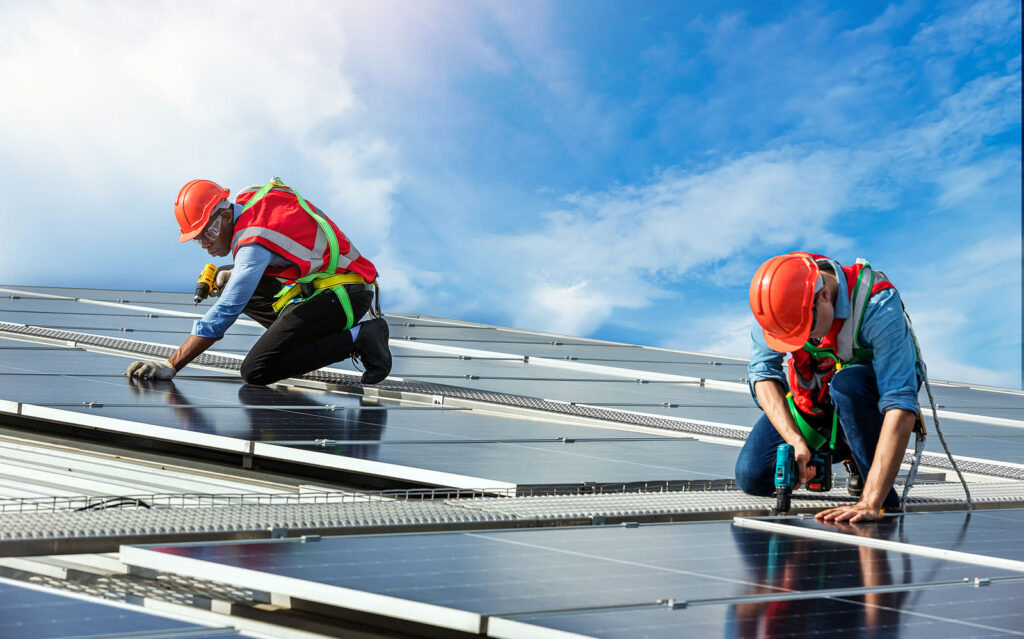
Is Solar Installation in Pakistan Really That Simple?
We’ve all seen the ads — “Switch to solar, save thousands, zero loadshedding!” Sounds amazing, right? But if you’re seriously considering Solar Panel Installation in Pakistan, you’ve probably realized there’s a lot more to the story. I’ve been through this journey myself, and trust me — it’s not just about slapping a few panels on your roof.
Before you sign a contract or swipe your card, let’s unpack what you really need to know about solar panel installation in Pakistan, from sun exposure to system sizing, and all the paperwork in between.
Understand Your Energy Consumption First
Let’s start here, because this is where most people get it wrong. Ask yourself: “How much electricity do I actually use?” Not your neighbor, not your cousin — you. Grab a few electricity bills and calculate your average monthly usage in units (kWh). This will determine the system size you need. If you use 500 units/month, you’ll likely need a 5kW to 6kW system, depending on your consumption habits.
And remember — bigger isn’t always better. Over-sizing a system without efficient usage or storage can lead to wasted generation and a bloated budget.
Roof Space & Sunlight: Your Solar Real Estate
Solar panels need uninterrupted sunlight. That’s why roof orientation and shade-free access are critical. In Pakistan, south-facing rooftops get the most consistent sunlight. You’ll need at least 100 sq ft per kW of space. So for a 5kW system? Think 500 sq ft of usable roof space.
Also, watch out for those pesky water tanks or trees throwing shade. Even a small shadow can drastically reduce panel performance.
On-Grid vs Off-Grid vs Hybrid: Know Your System Type
Choosing your system type depends on your energy goals.
- On-Grid: Best for savings, especially with net metering. You stay connected to WAPDA and sell excess power back.
- Off-Grid: Ideal for remote areas with no grid access. But you’ll need batteries, which increases the cost.
- Hybrid: A mix of both. Great for homes that want backup during load shedding while still enjoying net metering benefits.
For most urban homes in Pakistan, a hybrid system is the sweet spot. It’s reliable and helps balance between savings and backup power.
Let’s Talk Net Metering
Ah, yes, the golden ticket! With net metering, you can sell your unused solar electricity back to the grid. But here’s the catch — not all installers help with this, and the application process can be tedious if you’re doing it solo.
To qualify:
- Your system must be on-grid or hybrid.
- It must be installed by an AEDB-certified installer.
- You need to apply with DISCO (like K-Electric, LESCO, etc.).
Make sure your installer includes net metering support in the package!
Choose a Certified & Transparent Installer
This is a big one. Pakistan’s solar market is booming — but that also means a lot of shady operators are cutting corners. Always check if your installer is:
AEDB-licensed
- Offering warranties (ideally 10–25 years for panels)
- Providing after-sales service and maintenance support
- Transparent with inverter types, battery brands, and panel specs
And please, don’t just go for the cheapest option. Solar is a long-term investment, not a DIY home gadget.
Bonus Tip: Future-Proof Your System
Think ahead. Want to add battery storage later? Leave space for it. Planning to automate your home or connect it to smart devices? Choose an inverter that’s compatible with smart systems.
Curious how smart homes and solar work together? Don’t miss my blog on Smart Homes & Solar: Automating Energy Efficiency.
Final Thoughts: Plan Smart, Save Smart
So, is Solar Panel Installation in Pakistan worth it? Absolutely — if you plan it smartly. From understanding your energy usage and selecting the right system, to choosing a reliable installer and enabling net metering, every decision you make now will affect your savings for years.
Solar isn’t just about reducing bills — it’s about building energy independence and securing your future in a country where power crises are all too common.
Thinking of going solar? Drop us a message for a free consultation tailored to your home and needs. Let’s make your solar journey smooth, smart, and successful.







